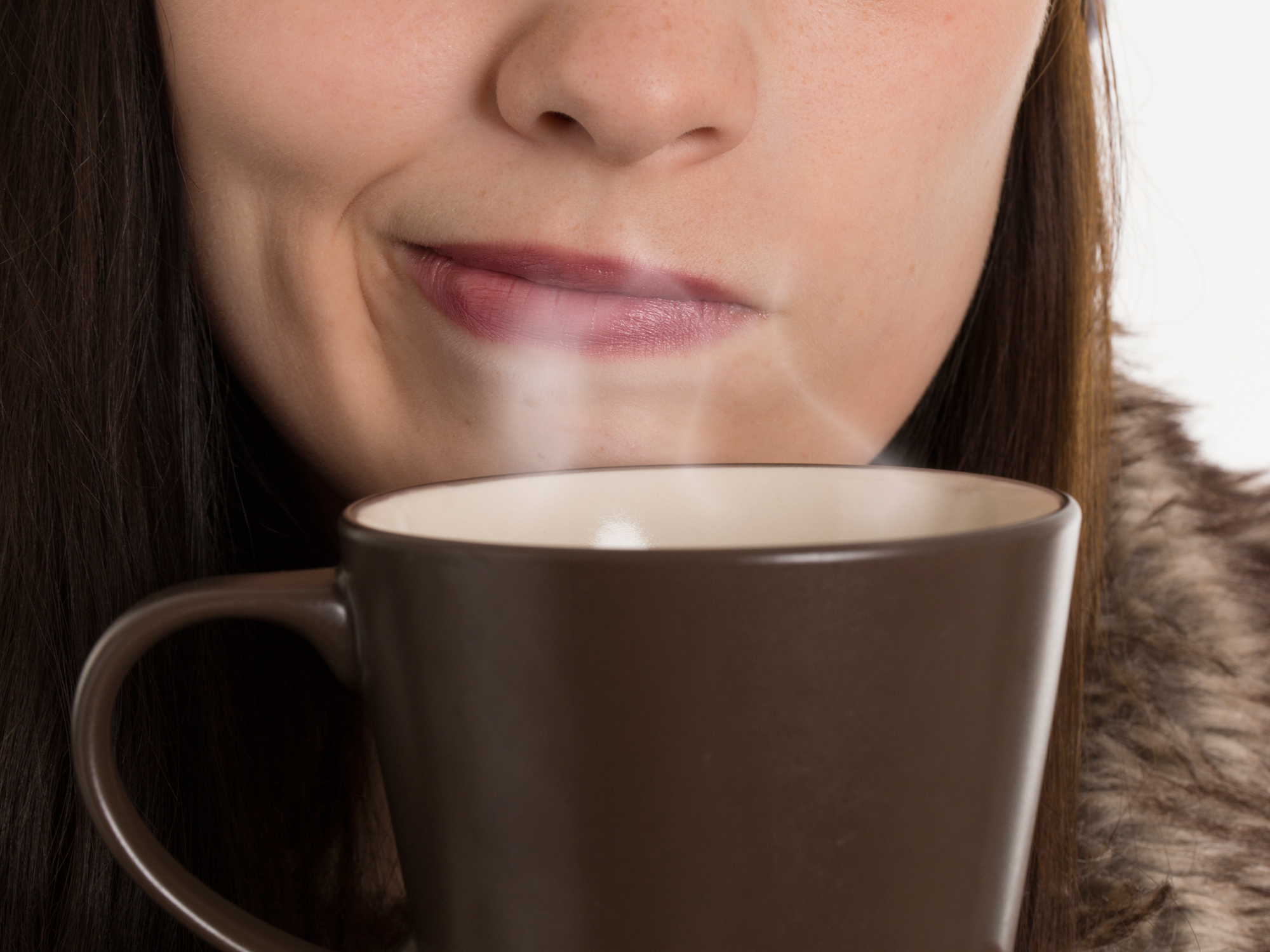Get Easy Health Digest™ in your inbox and don’t miss a thing when you subscribe today. Plus, get the free bonus report, Mother Nature’s Tips, Tricks and Remedies for Cholesterol, Blood Pressure & Blood Sugar as my way of saying welcome to the community!
Can piping hot drinks cause cancer?

If you’re a coffee lover, you can breathe a sigh of relief because it’s official — coffee doesn’t cause cancer. The World Health Organization has finally taken coffee off of its list of possible carcinogens after 25 years because the evidence just isn’t there.
In fact, the latest evidence tells you the opposite — that coffee is good for your health. Research shows that coffee protects you from certain cancers like endometrial, liver and breast cancer. And it even keeps you from getting neurological disorders like multiple sclerosis and Alzheimer’s too.
And coffee isn’t the only hot drink with major health benefits. Tea is the king of cancer-fighting beverages. Whether it’s green, black, white or herbal, your cup of tea is probably filled with immune-boosting antioxidants or herbs.
But if you’re drinking either of these beverages to improve your health, there’s one important thing you should consider before you take one more steaming hot sip — your drink’s temperature.
Because even though coffee was cleared of its reputation as a possible carcinogen, piping hot drinks of any kind are now officially classified as “probably carcinogenic” to humans by the World health Organization.
That’s because WHO officials noticed that people who like their drinks piping hot, like 150 degrees Fahrenheit or hotter, are also more likely to get esophageal cancer.
And even though WHO has made mistakes before (like when they classified coffee as a carcinogen), this time the connection makes a lot of sense. Hot drinks scald your throat. And if you drink extremely hot beverages daily, you’re damaging your throat over and over again. This nonstop damage can make your throat a breeding ground for tumors.
Now if you’re wondering whether 150 degrees Fahrenheit is a lot hotter than the drinks you’re usually served at your favorite restaurant or cafe, it’s not. Tea, coffee and hot chocolate are often served between 160 and 185 degrees Fahrenheit.
But you already know this if you remember the infamous McDonald’s hot coffee lawsuit from the 1990s. A woman got third degree burns from spilling her coffee on her lap. That coffee was 180 degrees Fahrenheit. So it’s definitely possible to get a dangerously hot drink from your local drive-thru.
Now that you know about this hidden danger in your coffee or tea cup, hopefully you’ll start sipping your hot drinks with more caution. And when in doubt about a steaming hot beverage, give it a few minutes to cool down.
If you really want to be precise, you can even use a coffee thermometer to check the temperature of your drinks. The ideal drinking temperature for coffee (or other hot beverages) is 140 degrees Fahrenheit. This should keep your drink enjoyably hot without any unwanted cancer risk.
Editor’s note: Cancer treatment in American is horribly outdated and ineffective. Dr. Michael Cutler’s guide, Surviving Cancer, is a compendium of natural cancer-fighting resources, like you’ve just read about, to help you AVOID cancer at all costs – including alternative therapies already approved in other countries, and foods, nutrients and supplements you should know about. Click here to get it today, plus three free reports!
Sources:
-
Loomis, K.Z. Guyton, Y. Grosse, B. Lauby-Secretan, et al. “Carcinogenicity of drinking coffee, mate, and very hot beverages.” The Lancet Oncology, 2016.
-
R. Diller, F. Brown. “Calculating the optimum temperature for serving hot beverages.” Burns. 2008 Aug; 34(5):648-54.












